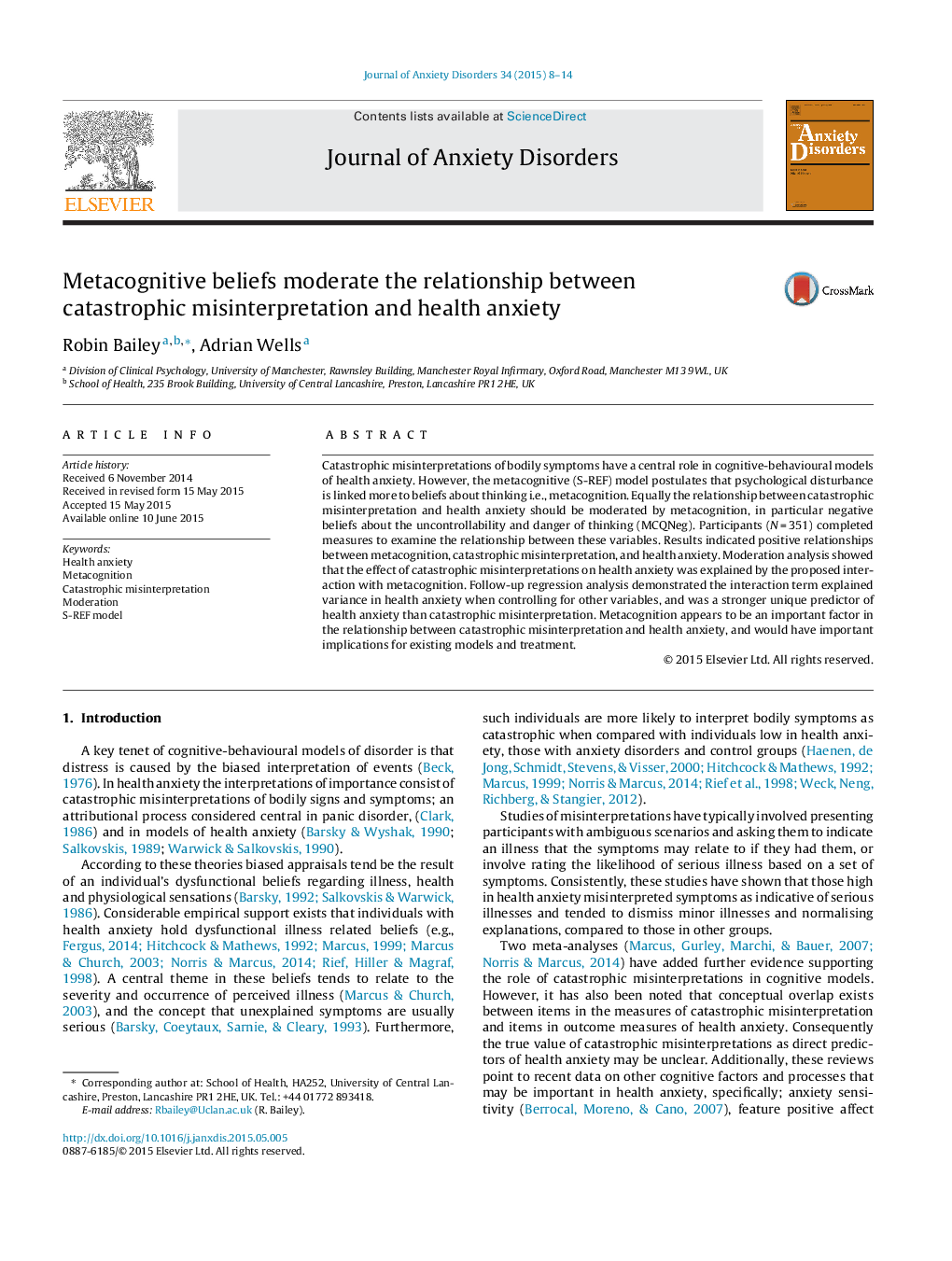| Article ID | Journal | Published Year | Pages | File Type |
|---|---|---|---|---|
| 909281 | Journal of Anxiety Disorders | 2015 | 7 Pages |
•Catastrophic misinterpretations and metacognitions contribute to health anxiety.•We examine the relationship between catastrophic misinterpretation, metacognition and health anxiety.•Moderation analysis showed that the effect of misinterpretations on health anxiety was explained by the interaction with metacognition.•The interaction was a stronger unique predictor of health anxiety than catastrophic misinterpretation.
Catastrophic misinterpretations of bodily symptoms have a central role in cognitive-behavioural models of health anxiety. However, the metacognitive (S-REF) model postulates that psychological disturbance is linked more to beliefs about thinking i.e., metacognition. Equally the relationship between catastrophic misinterpretation and health anxiety should be moderated by metacognition, in particular negative beliefs about the uncontrollability and danger of thinking (MCQNeg). Participants (N = 351) completed measures to examine the relationship between these variables. Results indicated positive relationships between metacognition, catastrophic misinterpretation, and health anxiety. Moderation analysis showed that the effect of catastrophic misinterpretations on health anxiety was explained by the proposed interaction with metacognition. Follow-up regression analysis demonstrated the interaction term explained variance in health anxiety when controlling for other variables, and was a stronger unique predictor of health anxiety than catastrophic misinterpretation. Metacognition appears to be an important factor in the relationship between catastrophic misinterpretation and health anxiety, and would have important implications for existing models and treatment.
